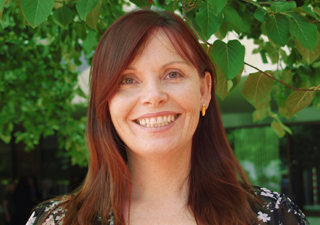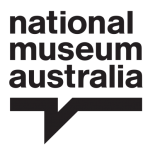by Dr Sharon Bessell (guest author) on 20 January, 2010

Presented at The Australian National University on 9 December 2009.
I would like to begin with a quote from Nelson Mandela. He has said:
There can be no keener revelation of a society’s soul than the way in which it treats its children.
I would add, that revelation is particularly acute and accurate when the children involved are those without parents or family to care for them. The way in which a society allows children in the care of the state to be treated is indeed a revelation of its soul.
In reflecting on the experiences of the Forgotten Australians, two questions are important to ask ourselves today:
First, what allowed these terrible abuses to occur?
Second, what is the situation of children who are in the care of the state today?
First, what allowed these terrible abuses to occur? The terrible experiences of those who we have come to know as the Forgotten Australians were first and foremost gross violations of human rights. They occurred at a time when children were not considered to be bearers of human rights. Children’s generally were considered chattels of their parents. Those children who were placed in institutions were often considered not as people – as human beings with human rights – but as social problems to be dealt with.
Over the past two decades the concept of children’s human rights has gained ground. This year we celebrate the 20th anniversary of the adoption by the UN General Assembly of the Convention on the Rights of the Child. What do children’s rights mean? The Convention – which provides the foundation for children’s rights, and which Australia ratified in 1990 – obliges governments to take proactive measures to uphold children’s rights. Children have the right – and governments have an obligation to uphold the right – to protection against all forms of abuse and neglect; to full development (including health care, education and schooling, shelter and leisure); and children have the right to have their say on matters affecting them. Under the Convention, governments are obliged to take serious account of a child’s best interests and to act in a way that does not discriminate against individual children. From a rights perspective, the treatment of the Forgotten Australians was – as I have said – gross violations of human rights.
Today, governments are taking the human rights of children more seriously. All jurisdictions in Australia, excepting the Northern Territory, have now adopted Charters of Rights for Children in Out of Home Care, and all have a Children’s Commissioner. The language and principles of children’s rights are influential in a range of policies, including the new National Child Protection Framework.
So we now have policies and frameworks to protect children – and to protect their human rights – that did not exist even a decade ago. We have non-government organisations and statutory bodies with a mandate to watch over children’s rights. The absence of a concept of children’s rights is one part of a very complex – and very disturbing – explanation of how terrible abuses were able to occur in the past. Children were placed in the care of institutions that were accountable to no-one and society was unconcerned so long as a potential social problem was dealt with.
So, to the second question, what is the situation of children in the care of the state today? First, as I’ve said, we’ve made considerable progress in putting in place a framework for human rights – it is not perfect, but it is progress. But there is a significant gap between rhetoric and reality.
Today, there are about 30,000 children in the care of the state across Australia. We have moved away from large-scale institutuionalisation and today over 90% of children in the care of the state are in home-based care. So how are we doing in terms of protecting their human rights? Well, in practice, not terribly well. It is well documented that children in care commonly experience placement instability. Placement instability – a nice, value neutral term. What this means, is that children are moved regularly from one living arrangement to another, one foster family to another, one group of strangers to another. Sometimes several times in a year, every year. A major problem here is that there simply are not enough carers to look after children – but there are other problems too. In the research I have done with children who have experienced out of home care, a common story is inadequate access to medical care, to dental care, and to adequate clothing and footwear. Often because of overly complicated and slow bureaucratic processes. One boy told me that the best thing about his current care placement was that his foster carer had been able to secure dental care for him – before that he has experienced over 12 months of pain, caused by a severely decayed tooth, but had no access to a dentist. Many children feel that they are not listened to and not valued. When asked who she turned to for support, one young women replied ‘The rape crisis centre helps.’ I could go on for a very long time – and the story is not a very pretty one.
We have, importantly, had a focus in recent years on the situation for children in out of home care. CREATE Foundation has been very important in drawing public attention to the issues. Generally, however, the focus is on what happens to children when the leave care. The story here is alarming – and demands attention! State care is a pathway to homelessness for many young people, and almost one third of young people leaving state care then experience homelessness. Many have inadequate education and few life skills. Early pregnancy and drug and alcohol issues are above the norm. We need to focus on what happens to these children as they grow up and leave care.
But we also need to focus on the situation of children who are in care now. And this is where attention is still inadequate. Too often, the focus is still on social needs and children can be represented all too easily as social problems. Too often, the focus is on children as human becomings (who will one day grow up and be fully human) rather than as human beings now.
During the very welcome and long ovedue apology to the Forgotten Australians, the Prime Minister said
If you hurt a child, a harmed adult will often result. Aggregate those adults who are harmed in care and the social, the economic and the personal cost is huge.
This is of course true. But it is also true that there is harm to a child – not only a future adult – and the cost to that child is great. From a human rights perspective, we must recognise, value and protect the human rights of children as human beings today – not only as future adults.
So, today we have a human rights framework, with potential to protect and support children in the care of the state. But we have much to do in practice.
In closing, I want to just reflect on the term the Forgotten Australians. I wonder if people, like Wilma and so many others, were actually forgotten. Perhaps they were ignored. I was talking with a colleague in the lead up to this evening and she said that she recalled as a child, her friends parents threatening that they would be sent to ‘reform school’ if they were naughty. Society knew institutions for children existed, and society knew they were not nice places. If society forgot, it was because society chose to forget. Today, we know about that life is often very unhappy for children in care, we know that their needs are often unfulfilled and their rights violated. If we forget them – and those who care for them – it is because we choose to forget. As a society, we cannot, I think, be forgiven for forgetting twice!


It appears we have not come very far at all. We are doing the same things but in a less obvious manner because the children are not grouped together in an institution wher it is more visable. But what are the answers? We keep pertuating the problem by creating another ‘Forgotten Generation’ every generation.
The MInister’s media release states ther are 500,000 care leavers in Australia. I’m wondering how this figure was arrived at and have they all ben able to be contacted?
regards
Valerie
correction needed, Presented at The Australian National University on 9 December 2010. should be Presented at The Australian National University on 9 December 2009
D’oh! Thanks Nicky! Correction made!
As an ex-foster carer of nearly two decades I have lost faith in a sysytem that still sees children as a case number. I was in Parramatta girl’s home in 1971 and albeit it was draconian but I never went back. In the decades that have passed the system and the ‘welfare’ -not much has changed. It will always be a flawed sysytem ,as a Government entity can not replace a parent and nor it should. Whilst we have chamges in legislation and recommendations there will always be a cuklture within that never changes. Foster parents battle on for their love of children and deal with the flawed system and lack of support. They should be acknowledged more for what they do, a selfless job with so very many damaged children and broken spirits.
It really is a sad state of affairs, care of children rests firmly on the shoulders of adults however after being a carer of foster children for twenty five years plus it is a thankless job. One must soldier on regardless of lack of support, allegations made constantly by children, lack of understanding, no proper holidays but yet they are constantly pressured to take on more and more children. The system is at breaking point and there is no definitive answer as to how to solve the problem. Children are being removed at an alarming rate from their homes for numerous reasons and sadly some times never being able to return. We have to find a system that works for the sake of children. Especially the children whom should never have been removed…
This is the first I have seen this so well articulated . I am grateful that someone in Dr Bessell’s position can speak thus…In my own experience my whole family put their hands up and pleaded they had no idea. Significantly, my sister has stopped speaking to me since I began these posts. Why don’t I leave well alone? This finale in Dr Beseesll’s speech could do with repeatingl–it is why:
” This by In closing, I want to just reflect on the term the Forgotten Australians. I wonder if people, like Wilma and so many others, were actually forgotten. Perhaps they were ignored. I was talking with a colleague in the lead up to this evening and she said that she recalled as a child, her friends parents threatening that they would be sent to ‘reform school’ if they were naughty. Society knew institutions for children existed, and society knew they were not nice places. If society forgot, it was because society chose to forget. Today, we know about that life is often very unhappy for children in care, we know that their needs are often unfulfilled and their rights violated. If we forget them – and those who care for them – it is because we choose to forget. As a society, we cannot, I think, be forgiven for forgetting twice!”
I want to add that I too was threatened with a reformatory before the Pines opened its maw and awallowed me alive. They knew, my mother was given a tour inside the barbed wire– but they didn’t want to know.
Hi, Adele,
I read Dr. Sharon Bessells comments dated 20/1/10 how there was no human rights for children us the Forgotten Australians.
Can you please forward my letter addressed to you Adele, dated 2/4/11 heading “thanks for Leonie Sheedys comments”, requesting she answer in detail the points I raised.
Rachael, I am so sorry to learn that your courageous and astute contributions to our site have resulted in a rift between you and your sister.
Our aim with this website is to give a voice to those who spent time in children’s institutions. It is important that no harm comes to anyone as a result of participating in this site. We will respect contributor’s wishes. However, just a reminder that contributors are most welcome to use their initial/s or use a phrase in place of your name to protect their identity.
We also understand that others feel the need to use their real name. The choice is yours. I also welcome feedback. Please feel free to let me know how we can enhance this site. It is important that this website is a safe place.
Thanks Christine,
As requested, I have forwarded your correspondence to Leonie.
Thank you so much for your follow up regarding this and thank you too for your dedicated and thoughtful comments on this site.
Hi, Adele,
Re response to 7/4/11
I want my correspondence and point questions to be answered by Dr. Sharon Bessell, not Leonie. Sorry for not making it clear.
By all means forwarded it to Leonie anyway with thanks.
Hi; Adele, Please forward to Dr. Sharon Bessell.
Dear Dr. Bessell,
Thankyou for your speach regarding Forgotten Australians how they did not have Human Rights.
With the continuing unfold account of all the evils done to the Forgotten Australians also the Stolen Generation, I find it inconcievable that all this was done to us children and no body was troubled by it at all. Did none of these Doctors, Psychiatrists, Wardsmen and women and other connected peoples, have any form of a conscience?, it seems not as they must have burnt their conscience so as nothing was WRONG on these issues.
But as the teachings of criminal sadomasochistic pederast Scientist Alfred Kinseys teaching on sex was so widly acccepted by the Academics and Governments,this could have had a strong influence on the attitude and abuse that the Forgotten Australians suffered at the hands of the supposing smart Doctors, Psychiatrists and Government people, as they did believe his teachings was ok as per Kinseys view.
Questions Dr. Bessell
1. Do you consider it a criminal act to rape, sodomise, torture [ electric shock treatment to rebellous children that stood up to nuns & abusive people] and traumatise children by drugging up with all sorts of unproven vaccines and even leprosy which was given to the Aboriganal children, the Stolen Generation in what ever way one could concieve, or is it ok if its done in the name of science.
2. Being a Doctor and your position of employmet you must of known about all the experiements and abuse that was done to the Forgotten Australians.
3. Have you represneted the F.As case in the full extent what happened to them to Parliament or do you defend the system polices and procedures.
4. Do you believe Forgotten Australians should be compensated and why and how much.
5. Why do you believe our government refuse to compensate F.As, particually the girls placed into adult mental asylums for so called rebellion or for what ever reason, where they were tortured drugged raped then hushed the abuse up and do nothing about it.
6. The children that lost their lives in Goodna mental asylum through abuse.
7. If the same abuse happened to you or your brother or sister, what would you do about it and why.
8. If you were to be required to appear in court in regards to information you have with out holding back anything, would you be prepared to testify of the abuses of F.As that you know of and give your honest opion? Thank you for your prompt reply.